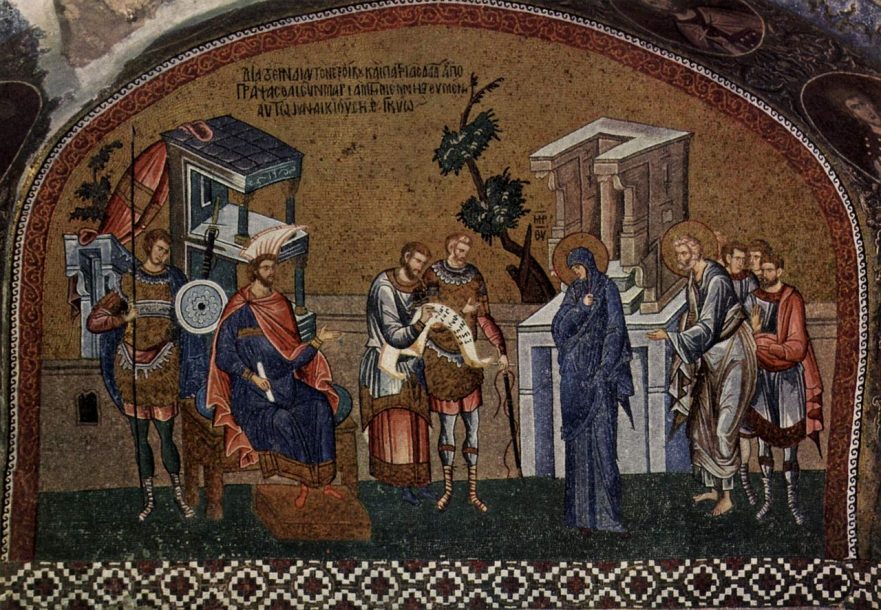Think of the year 1776 and the day of September 11, 2001. Most Americans identify these dates with specific events in our history. For Americans, 1776 is the year the American Revolution began and the thirteen colonies sought to gain their freedom from England. September 11, 2001, of course, recalls the terrible and tragic events of the terrorist attacks on the World Trade Center, the Pentagon, and a field near Shanksville, Pennsylvania. Although other events occurred in the world in 1776 and on September 11, 2001, the collective American conscience ties these dates to defining moments in our history.
In his Gospel, Luke offers a similar defining date that was part of the collective Jewish conscience of the first century:
And it happened in those days, a decree went out from Caesar Augustus that all the world should be registered. This census took place for the first time when Quirinius was governor of Syria. (Luke 2:1-2; emphasis added)
Modern readers tend to overlook the significance of the date of Quirinius’ census. Preachers and interpreters frequently point to Luke’s mention of the census as proof that God maneuvered even the pagan Roman authorities to bring about Jesus’ birth in Bethlehem. Few note the significance of the date within the history of the Jewish people living in the land of Israel. It’s my feeling that the events surrounding the census of Quirinius drew Luke to mention it within his narrative and connect Jesus’ birth to this event. He intended his mention of the census to illicit a connection in the minds of his readers between the birth of Jesus, the Messiah, and the events that happened in the land of Israel as a result of the census. The historical and political outcome of the census provides the backdrop that Luke expected his first-century readers to relate to the birth of Jesus, the Messiah.
Paid Content
Premium Members and Friends of JP must be logged in to access this content: Login
If you do not have a paid subscription, please consider registering as a Premium Member starting at $10/month (paid monthly) or only $5/month (paid annually): Register
One Time Purchase Rather Than Membership
Rather than purchasing a membership subscription, you may purchase access to this single page for $1.99 USD. To purchase access we strongly encourage users to first register for a free account with JP (Register), which will make the process of accessing your purchase much simpler. Once you have registered you may login and purchase access to this page at this link:

This article is just one chapter of Marc Turnage’s, Windows into the Bible: Cultural and Historical Insights into the Bible for Modern Readers (Springfield, Mo.: Logion, 2016). If you enjoyed this chapter, be sure to check out the entire book!
































































































Comments 3
Hello,
How do you explain that there is historical discrepancy regarding the date of Quirinius’ being governor over Syria, and the birth of Jesus? How do you interpret that?
Hi evanhierden,
We’ve forwarded your question to Marc Turnage, so hopefully we’ll hear back from him soon. In the meantime, we can recommend the Menahem Stern’s discussion of the problems relating to the date of Quirinius’ tenure as governor and the birth of Jesus, which is found in The Jewish People in the First Century (ed. S. Safrai and M. Stern; Philadelphia: Fortress, 1974), 1:372-374.
Very interesting perspective. Great insight into the Gospel of Luke!